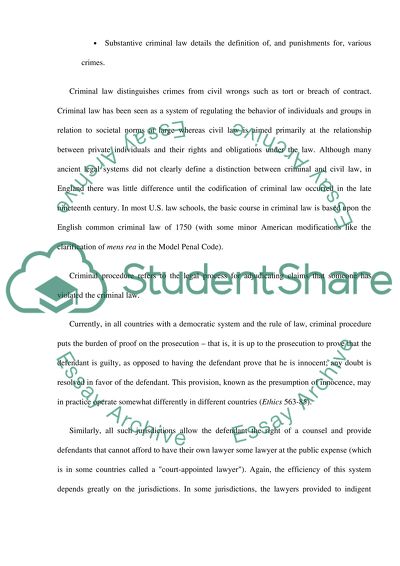Cite this document
(“Criminal Law: Penal Law Essay Example | Topics and Well Written Essays - 2000 words”, n.d.)
Criminal Law: Penal Law Essay Example | Topics and Well Written Essays - 2000 words. Retrieved from https://studentshare.org/miscellaneous/1525256-criminal-law-penal-law
Criminal Law: Penal Law Essay Example | Topics and Well Written Essays - 2000 words. Retrieved from https://studentshare.org/miscellaneous/1525256-criminal-law-penal-law
(Criminal Law: Penal Law Essay Example | Topics and Well Written Essays - 2000 Words)
Criminal Law: Penal Law Essay Example | Topics and Well Written Essays - 2000 Words. https://studentshare.org/miscellaneous/1525256-criminal-law-penal-law.
Criminal Law: Penal Law Essay Example | Topics and Well Written Essays - 2000 Words. https://studentshare.org/miscellaneous/1525256-criminal-law-penal-law.
“Criminal Law: Penal Law Essay Example | Topics and Well Written Essays - 2000 Words”, n.d. https://studentshare.org/miscellaneous/1525256-criminal-law-penal-law.


